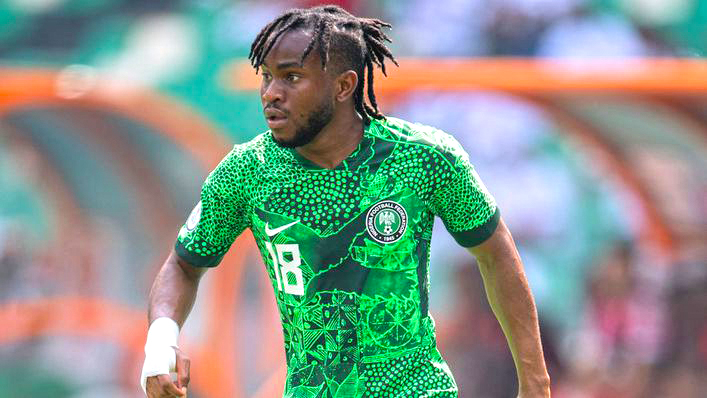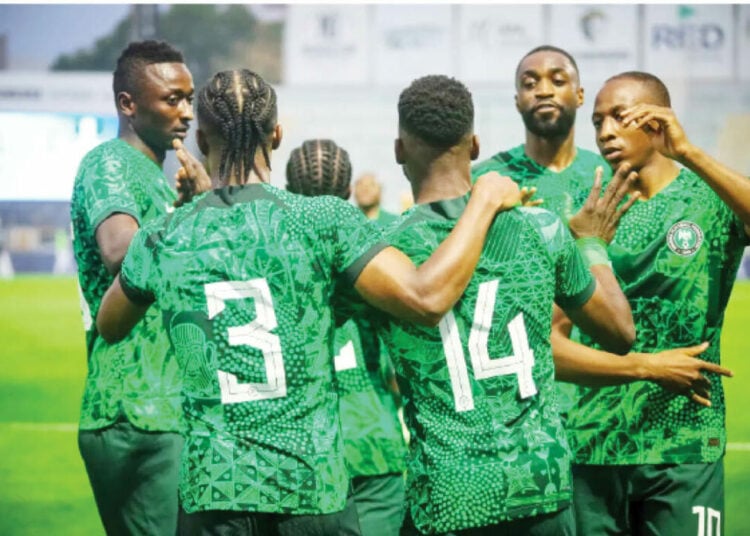How Athletes Lose Themselves After the Game Ends

For many athletes, the end of a career feels like the end of existence. The field, court, or track that once defined their worth becomes silent, and suddenly, the spotlight fades. Across Africa, countless sports icons have faced this haunting transition, from being celebrated national treasures to forgotten faces. It’s not just about losing a game; it’s about losing a sense of self.
When the noise stops, the void begins. The adrenaline that once shaped their days is replaced by an unsettling stillness. According to a BBC Africa feature, some retired athletes admit that the hardest part isn’t physical recovery but emotional survival. Without structure, training, or fans chanting their names, many spiral into depression, financial struggles, or identity crises.
The Price of Fame and the Silence After
The African sports scene has always been full of passion, not infrastructure. During their prime, many stars live for the now endorsements, media attention, national recognition, with little preparation for what comes next. In Nigeria, former footballers like Taribo West and Emmanuel Ebiede have openly discussed the struggles of maintaining stability after their careers. A Pulse Sports report highlighted how a shocking number of ex-players end up bankrupt within five years of retirement.
It’s not just about money. For athletes who started from humble beginnings, the game wasn’t just a profession; it was identity, purpose, and validation. When that fades, many don’t just lose income, they lose a reason to wake up.
The Mind Game After the Game

Psychologists call it post-career void syndrome. The term describes the emptiness that follows when people’s identities are too tied to one role. For athletes, whose sense of self-worth comes from performance, this void is amplified. In a Guardian Nigeria interview, a retired athlete described it as “a kind of silence that makes you question if you were ever real.”
The mental health conversation in African sports is still developing. While countries like South Africa have started athlete wellness programs, most nations lag behind. The Confederation of African Football (CAF) has acknowledged that career transition support remains one of the continent’s weakest links in sports management.
Family Pressure and Isolation
Beyond personal struggles, athletes often face family pressure once the stadium lights fade. Parents, spouses, and children may continue to expect the same energy, dedication, or financial support, unaware of the emotional void left by retirement. Some retired footballers admit that constant requests for money, combined with lost identity, lead to tension, resentment, and even isolation. Family can become both a source of support and a reminder that life after the game isn’t as glamorous as it once seemed.
When the Body Fails Before the Mind Adjusts
Age and injury often force athletes out before they’re mentally ready. For someone who’s trained their body since childhood, being told to “rest” feels like punishment. The body begins to slow down, but the mind still burns for competition. Former Kenyan marathoner Wilson Kipsang, once a world record holder, admitted that retirement felt like “being exiled from a life you built with your sweat.”
Even after years of discipline, the structure disappears. There’s no morning routine, no cheering fans, no championship to chase. And while fans move on to the next star, the former athlete is left trying to rebuild a sense of worth that isn’t tied to medals.
Money Can’t Buy Purpose

Financial mismanagement is another layer of tragedy. Some athletes, flush with early success, invest poorly or trust the wrong people. A CNBC Africa analysis once noted that a significant number of African sports professionals lack financial literacy training. Without proper planning, retirement can feel like a free fall.
Even beyond finances, what hurts most is the invisibility. Imagine being mobbed in airports at 25, then ignored at 40. Fame, for all its shine, rarely teaches people how to be ordinary again.
Media Pressure and Public Scrutiny
Even off the field, the media spotlight doesn’t fully fade. Fans remember the glory days, commentators compare former stars to rising talent, and social media never forgets a missed goal or failed season. This unrelenting scrutiny can exacerbate mental health struggles, leaving former athletes feeling judged for simply existing. The transition isn’t just physical or financial, it’s also psychological, navigating a world where fame has vanished but expectations haven’t.
Fans, Fame, and Emotional Aftermath
Fans, often the source of an athlete’s greatest highs, can unintentionally contribute to the emotional emptiness post-retirement. When stadiums once filled with cheers fall silent, the absence feels like abandonment. A BBC Sport feature highlighted that many retired players describe a lingering sense of invisibility being celebrated yesterday, forgotten today. For some, reclaiming identity involves finding new communities, causes, or careers that reconnect them with purpose beyond applause.
Many athletes struggle not just with life after the game, but with redefining identity itself. When you’ve spent decades being known as “the striker,” “the sprinter,” or “the champion,” who are you when the accolades end? According to ThisDay Live, retired African athletes often face a void of recognition, where their sense of purpose and societal validation evaporates. Rebuilding a new identity requires courage, self-reflection, and sometimes professional guidance, yet support structures remain scarce across much of the continent.
Healing Beyond the Stadium
Some, however, have found ways to redefine purpose. Didier Drogba, the Ivorian legend, transitioned into philanthropy through the Didier Drogba Foundation. Mary Onyali, Nigeria’s sprint queen, went on to mentor young athletes and promote female empowerment in sports. These stories show that it’s possible to heal but it requires redefining success beyond trophies.
Organizations like Athletes for Africa and The Players’ Union are advocating for career transition programs and mental health awareness. The message is simple: the game may end, but life doesn’t have to.
Redefining Victory
Real victory, it turns out, isn’t just about breaking records or lifting trophies. It’s about rediscovering identity when the world stops cheering. The true measure of strength lies not in endurance during the game but in resilience after it.
As Africa continues to build its sports industry, perhaps it’s time to expand the definition of winning to include peace, purpose, and mental well-being. Because when the final whistle blows, the athletes who rise again in new forms, in new callings are the ones who prove that their story never truly ended.
Recommended Articles
Nigeria's Ambitious Tech Leap: Forging a Path in the Global Silicon Race

Nigeria is making a strategic entry into the global semiconductor industry, aiming to become Africa's leading hub for mi...
Blockchain Revolutionizes Nigerian Trade: Peter Alfred-Adekeye Powers International Commerce

Boom, a blockchain startup founded by Peter Alfred-Adekeye, is launching an e-commerce 'super app' in Africa to serve un...
Fame Without Privacy: The Dark Trade-Off of Being an African Celebrity

In Africa’s entertainment world, fame comes at a high cost privacy. As social media turns stars into brands, this articl...
When Newspapers Were Morning Prayers

Once upon a time, newspapers weren't just read, they were revered. This nostalgic reflection shows how Africa's morning ...
Ethical AI Gets Major $3.7M Kickstart Across Africa and Asia

A new £2.75 million initiative, the AI Evidence Alliance for Social Impact (AEASI), has been launched to promote the res...
You may also like...
Crisis Looms for Super Eagles: Star Striker Ademola Lookman Out for Crucial Benin Clash!

Nigeria's Super Eagles face Benin Republic in a critical 2026 FIFA World Cup qualifier, with both teams affected by key ...
Super Eagles Triumph: Nigeria Revives World Cup Hopes with Crucial 2-1 Win Over Lesotho!

Nigeria's Super Eagles boosted their 2026 World Cup qualification hopes with a 2-1 victory over Lesotho, featuring goals...
2025 GMA Dove Awards Crown Stars: Forrest Frank, Brandon Lake, Jelly Roll, Leanna Crawford Triumph

The GMA Dove Awards celebrated Christian music's top artists and songs on October 10th at Nashville's Bridgestone Arena,...
BamBam's Heart in Bangkok: First Thai-Language Album Set to Drop

K-pop idol BamBam is set to release his first full Thai-language album, 'HOMETOWN,' on October 10, marking a significant...
Urgent EU Travel Alert: UK Tourists Need Specific Funds from Sunday!

British travellers are advised to be prepared for questions about their financial resources when visiting EU and Schenge...
Millions of Drivers Face Lockout Risk from Keyless Car Fobs!

Keyless car fobs, a modern convenience, are susceptible to malfunctions in cold weather due to battery performance degra...
Music Industry Under Fire: Canice Igwe Claims Nigeria's Scene Stifles Creativity

Rising music sensation Canice Igwe critiques the Nigerian music industry for stifling creativity, advocating for a uniqu...
Kingdom Achievers Awards Shakes Up Industry: New Recording Academy Unveiled, Public Voting Halted!

The Kingdom Achievers Awards (KAA) is revolutionizing its recognition process for its fourth edition, shifting from publ...
